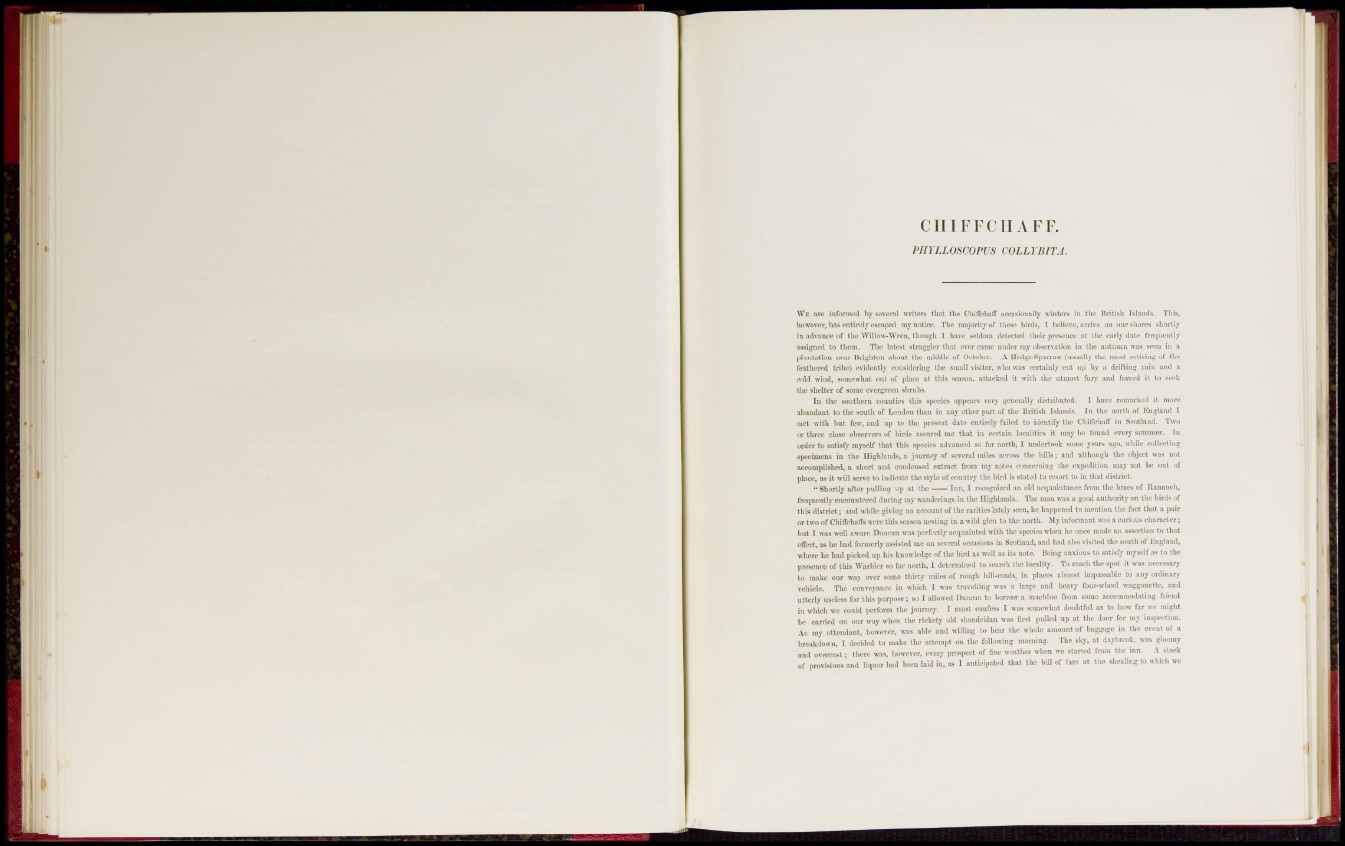
C I I I F F C H A F F .
PHYLLOSC0PU8 COLLYBITd.
WE are informed Iry several writers lliat the ChiffehnlT occasionally winters in the British Islands. This,
however, has entirely escaped my notice. The majority nf these bird*, I I relieve, arrive oa our shores shortly
in advance of the Willow-Wren, though I have seldom detected their presence at the early da to Iroquonlly
assignod to them. The latest straggler that ever came under my observation in the niiliimu was seen in a
plantation near Hrightun about the middle of October. A Uedgis-Sparmw (usually the most retiring of the
feathered tribe) evidently considering the small visitor, who was certainly cut rqi by a drifting rain and a
cold witid, somewhat out of place at this season, attacked it with the utmost fury and forced it to look
the shelter of some ovorirreoii shrubs.
In the southern counties this species appears very MoenDj distributed. I have remarked it mon;
abundant to the south of Loudon than in any other part of the Urili-h Islands. In the north of England I
met with but few, and up to the [.resent date entirely failed to identify the Chilfi-liatT in Scotland. Two
or three close observers of birds assured me that in certain localities it may he found every summer. In
order to satisfy myself that this species advanced so far north, 1 undertook some year- ago, while collecting
specimens in the Highlands, a journey of several miles across the bills; and although the object was nut
accomplished, a short and condensed extract from my nolos concerning the expedition may not In? out ol
place, as it will servo to indicate the style of eountry the bird is stated to resort to in that district.
"Shortly after pulling up at the Inn. I recognized an old acquaintance from the braes of Itannocli,
frequently encountered during my wauderim-s in the Highlands. The man was a L'OLHI authority on the birds of
this district; and while giving an account of the rarities lately sen, he happened to mention the fad thai a pair
or two of ChitTohalFs wen- this season nesting in a wild glen to the north. My iaformani w is a curious character;
hut I was well aware Duncan was perfectly acquainted with the species when be once made an assertion to that
effect, as he had formerly assisted me on several occasions in Scotland, and had also visited the south uf England,
where he had picked up bis knowledge of the bird as well as its nolo. Being anxious to satisfy myself as to the
presenile of this Warbler so far north, I determined to search the locality. To reach the spol it was MCMM17
to make our way over some thirty miles of lOagh hill-roads, in places almost impassable to any ordinary
vohiole. The conveyance in which I was travelling was a large and heavy four-wheel waggonette, and
Utterly useless for ibis purpose ; so I allowed Duncan to borrow a machine from some accommodating friend
in which we could perform the journey. I must confess I was somewhat doubtful as to how far we might
bo carried on our way when the rickety old shandridan was lirst pulled up at the door for my inspection.
As my attendant, however, was able and willing to hoar the whole amount of baggage in the event of a
breakdown, I decided to make the nttempt on the following morning. The sky, at daybreak, was bloomy
and overcast ; there was, however, every prospect of line weather when we started from the inn. A stock
ol" provisions and liquor had been laid in, as I anticipated that the hill of fare at the shoaling to which wc